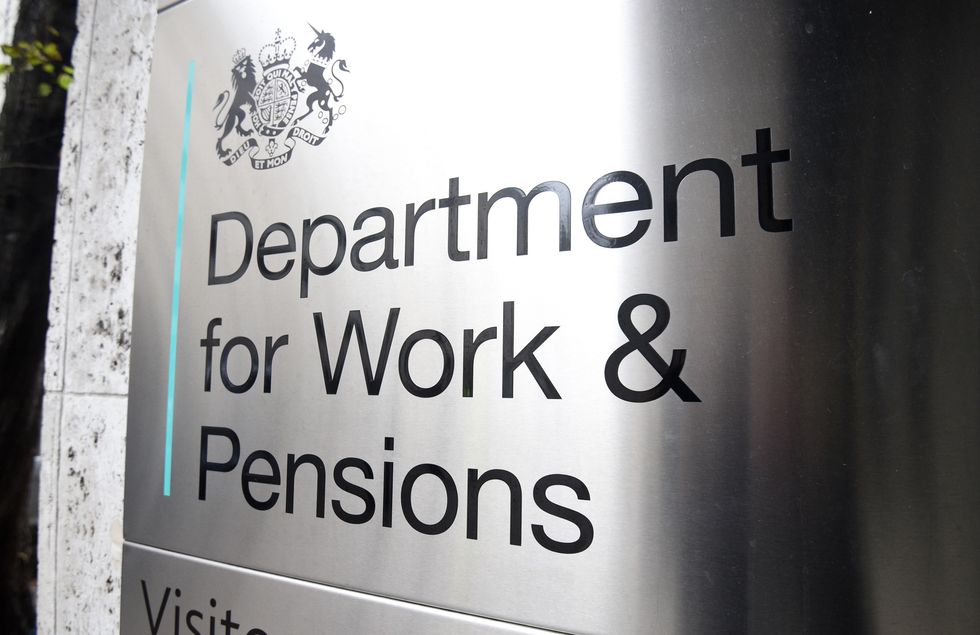Over 450,000 pensioners miss out on triple lock boost and lose £4,900 in state pension payments each year
This freeze particularly impacts those living in Commonwealth countries
This freeze particularly impacts those living in Commonwealth countries, with more than 95 per cent of affected pensioners
Don't Miss
Most Read
Trending on GB News
British expats receiving state pensions abroad are facing a significant financial shortfall compared to their UK-based counterparts.
Over 453,000 UK pensioners living overseas receive an average of just £3,000 in annual state pension payments - nearly £4,900 less than retirees who remain in the UK, new calculations by interactive investor have shown.
The discrepancy is largely due to the 'frozen pensions' policy, which affects British citizens who retire to certain countries.
Under this system, their state pension payments remain fixed at the rate they first received upon moving abroad, without the annual increases enjoyed by pensioners in the UK under the triple lock agreement.
The triple-lock arrangement ensures the state pension is increased each year by the highest of three measures: 2.5 per cent, inflation, or average wage growth.
However, British citizens who choose to retire outside the UK may find that their state pension payments are “frozen,” and won't receive adjustments for inflation or other factors that typically drive increases.

Over 40 per cent, or 453,481, of the 1.12 million pensioners living overseas are affected by frozen state pensions, according to DWP dat
PAThis freeze particularly impacts those living in Commonwealth countries, with more than 95 per cent of affected pensioners residing in nations such as Australia, Canada, South Africa, and New Zealand. The impact of frozen pensions becomes more severe over time, as the gap between frozen and uprated pensions widens.
Interactive investor's calculations, based on Department for Work and Pensions data from May 2023, reveal that pensioners in their 90s with frozen pensions receive just £1,896 annually.
This is compared to £4,803 for those abroad with uprated pensions, and a staggering £6,006 less than pensioners living in Britain.
The gulf between the average state pension paid to UK citizens who live abroad and their counterparts who remain in the UK suggests that many in the former group are also impacted by lower national insurance contributions due to living abroad during their working life. As a result, their state pension entitlement is lower.
Over 40 per cent, or 453,481, of the 1.12 million pensioners living overseas are affected by frozen state pensions, according to DWP data. This equates to just under four per cent of the 12.7 million people receiving state pension payments.
The case of Peter Sanguinetti, an 85-year-old British expat in Canada, illustrates the harsh reality of frozen pensions. Sanguinetti left the UK in 1984 and discovered his state pension was frozen at £72 per week when he began drawing it in 2009.
He said: "Should it really be necessary at the age of 80 to have to work solely to replace that missing part of my state pension which the UK Government steals from me every day?"
Unable to survive on this sum alone, he took a part-time job as a school bus driver at 80 years old. Sanguinetti estimates he has lost £29,000 due to his frozen pension.
For those considering retiring abroad, experts advise careful planning to mitigate the impact of potential frozen pensions.
Myron Jobson, Senior Personal Finance Analyst at interactive investor, warned: "If you're planning to retire in a country where the UK state pension is frozen, it means you won't benefit from the annual increases that help keep up with inflation, and as such, your payments will decline in real terms throughout your retirement."
To offset this, retirees may need to make extra contributions to private pensions or other savings.
Jobson continued: "Those contemplating retirement overseas should plan well in advance to ensure they’re able to enjoy a comfortable retirement.
"It is important to understand the state pension rules of the destination country.
"Those facing a frozen state pension might need to make extra contributions to their private pension or other retirement savings to offset the financial impact of the lack of uprated payments.
LATEST DEVELOPMENTS:
"By boosting your pension pot now, you can help ensure a more secure and comfortable retirement, regardless of where you choose to settle. Even modest increases can compound significantly over time to provide a boost to retirement funds."
Britons are urged to seek advice from a financial adviser to fully understand the implications of retiring abroad and plan accordingly.







